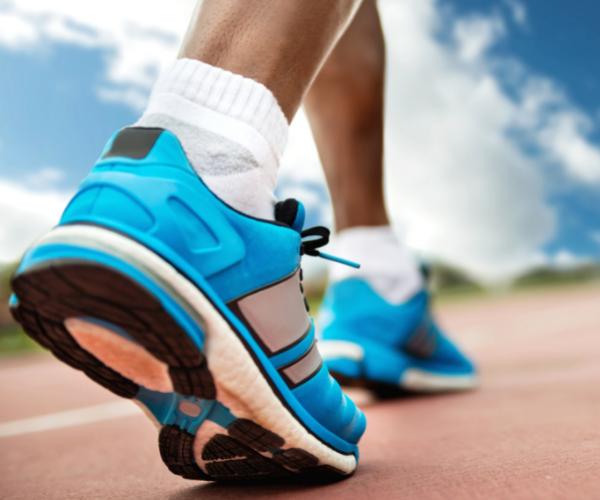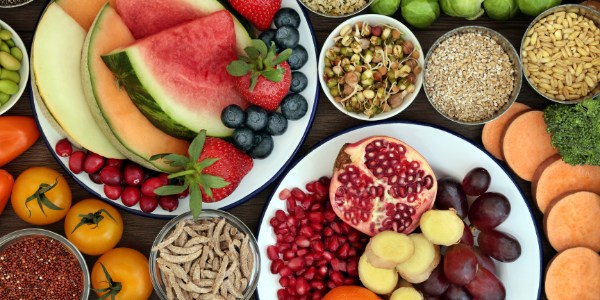
5 Study Proven Benefits of Bi-Amino

Bi-Amino is a blend of two important amino acids:
- L-Arginine
- L-Citrulline
Together, these amino acids can help promote the production of nitric oxide (NO), which has many positive effects.
Bi-Amino injections can also help encourage Human Growth Hormone (hGH) production, support athletic performance, and more.
Read on to learn about the science-backed benefits of Bi-Amino injections.
1. Improved Nitric Oxide (NO) Production
Nitric Oxide (NO) is involved in several bodily processes. It’s a vasodilator, which means it encourages blood vessels to expand.
NO was found to play an important role in:
- Regulating healthy blood pressure
- Acting as a killer of bacteria and tumor cells
- Supporting memory and thought process
- Regulating inflammation and the immune system
- And more
L-Arginine, a component of Bi-Amino injections, is one of the largest sources of nitrogen for NO production. L-Citrulline has also shown effectiveness in increasing the body’s production of NO.
2. Impact on Wound Healing and Recovery
Because Bi-Amino injections increase NO production, they can also support healing, recovery, and managing chronic conditions.
NO is a vasodilator, so it can increase blood flow. This can help manage conditions like:
- Congestive heart failure
- Heart disease
- Peripheral vascular disease
- Migraines
As for injury healing, L-Arginine and NO have shown significant effects on muscle metabolism and recovery. NO encourages collagen synthesis and wound healing and has been shown to enhance tendon healing.
Bi-Amino injections also support the production of Human Growth Hormone (hGH), which can facilitate tissue growth and healing.
Note: While Bi-Amino injections have shown benefit in the management of certain chronic conditions, it’s important to work with an experienced provider to come up with a physician-guided care plan.
3. Supporting Athletic Performance
Studies show that Bi-Amino injections with L-Arginine and L-Citrulline can have positive effects on athletic performance.
L-Arginine improves vascular function and supports the creation of creatine, which is an important amino acid during exercise.
L-Arginine can also stimulate the release of insulin, glucagon (a hormone that controls glucose levels), catecholamines (hormones released during physical exertion), and Human Growth Hormone (hGH).
L-Arginine may also decrease muscle fatigue during exercise by reducing the accumulation of lactate and ammonia in the muscles.
In addition, studies have shown that recovery time is significantly decreased after exercise when supplementing with these amino acids.
4. Metabolism and Fat Loss
Studies have shown that L-Arginine influences the metabolism of macronutrients. This amino acid may also encourage fat burn specifically, which can help support healthy body composition.
Bi-Amino injections may help preserve lean muscle and increase fat burn when combined with a calorie restrictive diet and exercise.
5. Improved Sexual Function and Cardiovascular Health
Bi-Amino injections increase the production of NO, which acts as a vasodilator and can have benefits to the cardiovascular system. Increased blood flow can also be beneficial for sexual health and erectile dysfunction.
Chronic conditions like hypertension, chronic heart failure, and Type 2 diabetes also contribute to erectile dysfunction. Bi-Amino injections can help manage these conditions and potentially lessen their impact on sexual health.

The Benefits of Bi-Amino Injections
Studies show that Bi-Amino injections can have many positive effects. Defy Medical offers a wide range of high-quality injectable nutrients like Bi-Amino injections to help patients optimize their wellness and achieve specific goals.
Ready to learn more?
Get StartedSources:
-
- A: Roszer, T (2012) The Biology of Subcellular Nitric Oxide. ISBN 978-94-007-2818-9 B: Weller, Richard, Could the sun be good for your heart? TedxGlasgow March 2012, posted January 2013
- Lin, W.T., Yang, S.C., Chen, K.T., Huang, C.C., and Lee, N.Y., Protective effects of L-Arginine on pulmonary oxidative stress and antioxidant defences during exhaustive exercise in rats, Acta Pharmacol. Sin, 26(8), 992, 2005.
- Schaefer, A., Piquard, F., Geny, B., Doutreleau, S., Lampert, E., Mettauer, B., and Lonsdorfer, J., L-arginine reduces exercise-induced increase on plasma lactate and ammonia, Int. J. Sports Med., 23(6) 403-407, 2002
- Gokce, N., L-arginine and hypertention, J. Nutr., 134(10 Suppl), 2807S-2811S, 2004
- Murrell, G.A., Szabo, C., Hannafin, J.A., et al., Modulation of tendon healing by nitric oxide, Inflamm. Res., 46, 19-27, 1997.
- Lin, J.H., Wang, M.X. Wei, A.Q., et al., Temporal expression of nitric oxide synthase isoforms in healing Achilles tendon, J. Orthop. Res., 19, 136-142, 2001.
- Lin, J.H., Wang, M.X. Wei, A.Q., et al., The cell specific temporal expression of nitric oxide synthase isoforms during Achilles tendon healing, Inflamm. Res., 50, 515-522, 2001.
- Berdeaux, A., Nitric oxide: An ubiquitius messenger, Fund. Clin. Pharmacol., 7(8), 401-411, 1993.
- Morikawa, E., Huang, Z., and Moskowitz, M.A., L-arginine decreases infarct size caused by middle cerebral arterial occlusion in SHR, Am, J. Physiol., 263(5, Pt2), H1632-H1635, 1992.
- Huynh, N.N., and Chin-Dusting, J., Amino acids, arginase and nitric oxide in vascular health, Clin. Exp. Pharmacol. Physiol., 33 (1-2), 1-8, 2006.
- Marin, J., and Govantes, C., Angiotensin-converting enzyme inhibitors and the role of nitric oxide and excitatory amino acids in improvement of cognition and memory, J. Autonom. Pharmacol., 15(2), 129-149, 1995
- Albina, J.E. and Reichner, J.S., Nitric Oxide in inflammation and immunity, New Horizons, 3(1), 46-64, 1995
- Meneguallo, M.O., Mendonca, J.R., Lancha, A.H., Jr., and Costa Rosa, L.F., Effect of arginine, ornithine, and citrulline supplementation upon performance and metabolism of trained rats, Cell. Biochem. Funct. 21(1), 85-91, 2003.
- Beaumier, L., Castillo, L., Yu., Y.M., Ajami, A.M., and Young, V.R., Arginine: New and exciting developments for an “old” amino acid, Biochem. Environ. Sci. 9(2-3), 296-315, 1996.
- McConell, G.K., Huynh, N.N., Lee-Young, R.S., Canny, B.J., and Wadley, G.D., L-arginine infusion increases glucose clearance during prolonged exercise in humans, Am. J. Physiol. Endocrinol. Metab., 290(1), E60-E66, 2006.


